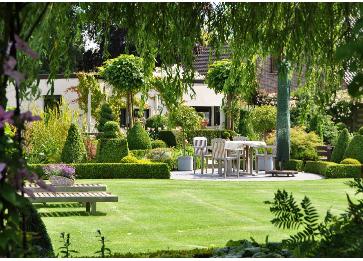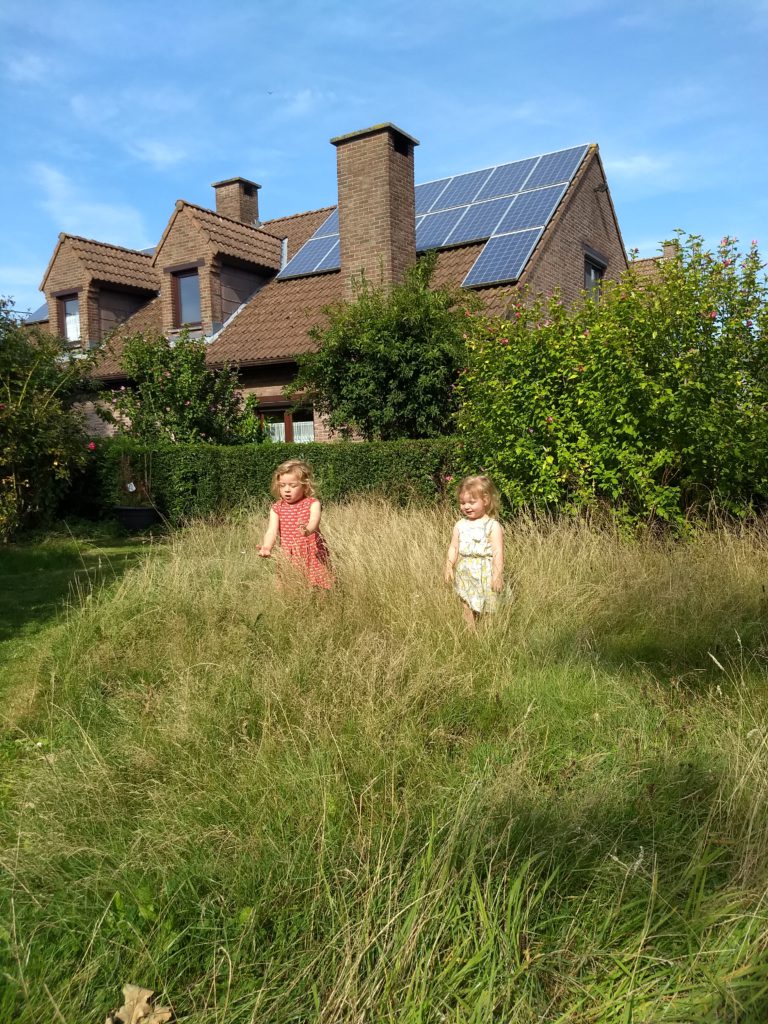31/08/2019
Enough about my bike, it was never my intention to limit my blog to only one subject. What more can you tell about biking? Whenever I find something to tell about it, you will read it here… At the beginning, biking wasn’t even one of the themes I had in mind for the blog. My aim was always to bore you out with reflections about the world. There you are.
should I say “my” garden?
So, the world. Let’s begin with the small world of my own garden. Odd, isn’t it, that we, mortals, can claim to be the owner of a piece of earth? Have we got the right to own it, more than the million of ants who live in it, the birds in its trees, the stray cats? Or the plants and the flowers? Although you will say I bought these plants and flowers… Well, not always.
Now you should know, I never was a big fan of clean gardens with hedges, lawns and short cut grass. My dream garden looks more like the orchards of my youth, with bearing trees between proliferating plants.
I admit: I am not a passionate gardener, lawn mowing, taking care of flowers and plants. I will not say that I hate it, but if I have the opportunity to do something else, I will not hesitate.
Imagine my reaction when I read an article about biodiversity, saying that letting the garden grow on its own would be a great thing for flora and fauna. Exactly my thing!
I managed to convince Annie to let a stroke of grass grow. After a while, we could see what grass should look like when it is full grown, with all kinds of other plants in between, we will call them “weed”.
weed
noun (1) \ ˈwēd \
Definition of weed
(Entry 1 of 3) 1a(1) :
- a plant that is not valued where it is growing and is usually of vigorous growth especially one that tends to overgrow or choke out more desirable plants
The definition says it all: we people decide to call a plant weed, because it doesn’t serve our needs or because it is not “beautiful”. That ‘s it. It doesn’t mean that this plant is bad or dangerous. They have also the tendency to pop out everywhere, even when we pour litres of our precious gliphosate over it. Or we try to eradicate them manually, like this neighbour who sits all days to get rid of dandelion with a short knife. She has done that for many years, without any result. But I can imagine she is still doing it as a sort of meditation, nothing wrong about that.
What we have to fight against: the deep prejudice we all bear about how a garden should look like. It has always been a human thing to transform nature for its own purpose, utilitarian (agriculture, habitation,…) or aesthetic. At the same time, we go on holidays to “get back to nature”. We have a very dual relation with nature: we fear it but also admire it. We live on the countryside to escape from the urban strain, build a nice house with a beautiful garden, and then appoint a gardener to take care of it, read: to sterilize it. In my neighbourhood, most of the summer days are filled with the noise of their machines. When you think of it: Belgian surrealism.

Belgian surrealism: nature in a human form
Back to our own garden. What was to be expected: neighbour’s complaint. Because a garden should be taken care of, it should be clean, not bewildered. Look, I understand them, such long time habits can not be thrown away in only one generation. “Weed” doesn’t know the borders, hedges and fences, it finds its way to the neighbour’s garden. I believe in the saying “my freedom ends where my neighbour’s freedom begins”, I created a “clean” buffer along the hedges.
What pleases me: children do not care about old conventions, my grandchildren love the high grass to play in. And they are always right…

Fran en Ellis love it: playing in the high grass. A part of the lawn was cut short for them, but they made another choice. At the end of the day, papa and mama are checking for ticks and louses.
And, for the record: yes, I think my garden is the most beautiful in the neighbourhood, nah!
